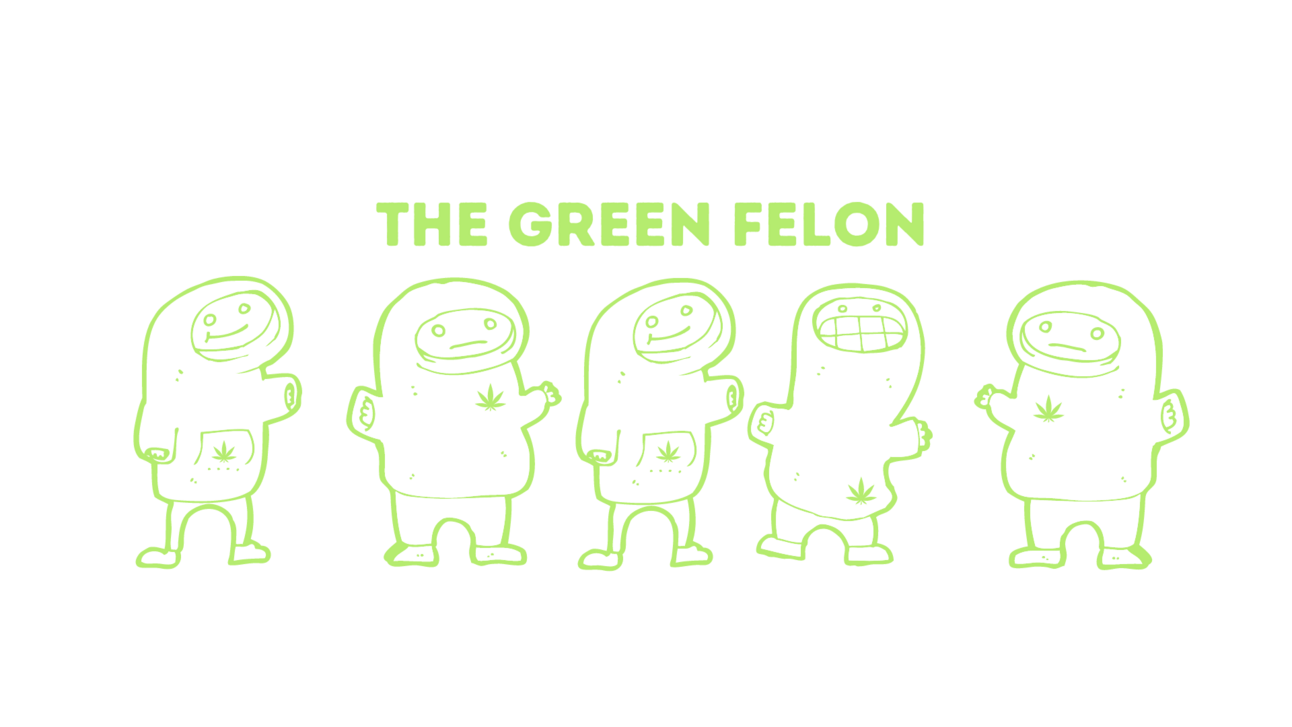Find out why 1M+ professionals read Superhuman AI daily.
In 2 years you will be working for AI
Or an AI will be working for you
Here's how you can future-proof yourself:
Join the Superhuman AI newsletter – read by 1M+ people at top companies
Master AI tools, tutorials, and news in just 3 minutes a day
Become 10X more productive using AI
Join 1,000,000+ pros at companies like Google, Meta, and Amazon that are using AI to get ahead.

News Highlights 📒:
Thomas Jefferson University 🏬: TJU provides a fully online Master of Science in Medical Cannabis Science and Business 👨🎓, designed to impart knowledge in cannabis medicine 💊, science, business, policies, and social aspects. Thomas Jefferson University
University of Cincinnati: UC features a Cannabis 🧪 Studies Certificate offering a multidisciplinary foundation for understanding the cannabis plant and industry, preparing students 👩🎓 for various employment opportunities. University of Cincinnati Design College
Long Beach ✴️ City College: LBCC offers an 8-week Introduction to the Cannabis Industry course, covering topics from cultivation 💦 to retail, aiming to equip students with essential knowledge and skills 🖇. scps.depaul.edu

Quick Read 💻:
🎓 Academia Embraces Cannabis Innovation: Top-tier universities 👨🏫 now offer Cannabis Science degrees, blending molecular biology 🦦, pharmacognosy, and agronomic research to meet industry demands for skilled cannabis 🌶️ professionals.
🎓 Specialized Degrees with Professional Outcomes: Programs like Medicinal Plant Chemistry and Cannabis Biology equip students 🙃 with analytical lab skills, regulatory fluency, and business acumen, leading to lucrative careers in the legal cannabis 🍏 industry.
🎓 National Shift in Cannabis Education: Institutions across the U.S.—from UC Davis to LSSU—are rapidly expanding cannabis-related 🧝 curricula, acknowledging its socioeconomic, therapeutic, and environmental significance 🎊.
🎓 Legitimacy Beyond the Stereotype: Unlike informal online 🎞️ tutorials, accredited Cannabis degrees offer scientifically rigorous education, ensuring graduates are prepared for roles in pharmacological development, cultivation 💧 science, and policy reform.
🎓 Global Implications for Cannabis Graduates: As international legalization gains momentum, American-trained 💧 cannabis scientists are poised to shape the future of global cannabis regulation, research 📃, and innovation.

Top Universities 👩🏫 Offering Cannabis Science Degrees: Higher Education Meets Higher Consciousness
There was a time 📟 when the phrase “cannabis curriculum” would have gotten you expelled 🏃♂️ faster than you could say sativa. But times, like terpenes, have evolved. Today, the top universities in the U.S. 🦅 and beyond are not only legitimizing cannabis 🧠 as a subject of academic inquiry, but they’re elevating it into a field with genuine scientific merit, robust job potential, and—yes ✅—a complex molecular profile worthy of postdoctoral research 🧿.
In this bold, brainy, and borderline blazed newsletter 📇, we take you through the top institutions offering Cannabis Science Degrees, merging high-ranking academia 🏫 with high-THC analysis 🤖.
The University of Vermont offers a Cannabis Science and Medicine Professional Certificate program that covers the biological and medical aspects of cannabis."
The Rise ☄️ of the Cannabis Scholar: From Stoner Stereotypes to STEM Programs
Before we launch 🚀 into institutional highlights, let’s contextualize this cultural shift. Cannabis 🌿 was, for decades, relegated to counterculture caricature—Cheech, Chong, and a cloud 🌩️ of illegality. But following the passage of numerous state-level legalization laws, the plant now demands rigorous study, not only for medical applications but also for agribusiness, pharmacology, sustainability, and public health 🩺.
In 2️⃣0️⃣2️⃣4️⃣ alone, the demand for cannabis researchers, extraction chemists, and policy experts grew by over 26%, according to Leafly’s Job Report 💼. As the cannabis economy skyrockets—projected to hit $57B globally by 2030—universities are offering degrees that go far beyond “weed 101” 🌎.
Northern Michigan ☃️ University (NMU) – Medicinal Plant Chemistry
You read that right 🤩—Northern Michigan was the first accredited university in the U.S. to offer a degree in Medicinal Plant Chemistry. This program is essentially a fusion of organic chemistry, botany, and entrepreneurial innovation 🧰.
Students learn everything from terpene fingerprinting ☝🏾 to compliance regulations—minus the actual inhalation, of course 🧯. Graduates can enter careers in lab testing, quality assurance, or product formulation, often out-earning their non-cannabinoid peers within the first two years 🧮.

University of California 🌞, Davis – Physiology of Cannabis
UC Davis is, unsurprisingly, among the intellectual vanguard of cannabis education 📊. Their “Physiology of Cannabis” course dives deep into the endocannabinoid system, THC’s pharmacodynamics, and the neurobiology of plant-human interaction 🧬.
And while it’s currently structured as a continuing education class rather than a full major, insiders suggest that a formal Cannabis Biology program is in the pipeline 🧲. Given Davis’ agricultural prowess and proximity to the Emerald Triangle 🏔, this expansion feels less like an “if” and more like a “when” 🕰️.
Colorado ❄️ State University – Pueblo – Cannabis Biology and Chemistry B.S.
This full-blown bachelor’s degree is not an elective experiment ⚗️—it’s a structured, four-year science track rooted in molecular biology, lab analytics, and plant cultivation 🌾. It’s also the first in the U.S. explicitly labeled “Cannabis” on the diploma, which certainly makes for some unforgettable job interviews 📨.
With legalized cannabis in Colorado since 2️⃣0️⃣1️⃣2️⃣, CSU Pueblo provides both the academic rigor and geographic relevance to elevate your study of cannabis into a legitimate STEM pursuit 📘.

Lake Superior 🚤 State University (LSSU) – Cannabis Chemistry and Cannabis Business
While other universities offer cannabis-related 🏝️ classes, LSSU went all-in: two degree options, state-of-the-art lab equipment, and industry-funded scholarships 🪙. Students don lab coats, not tie-dye, and analyze cannabinoid extractions, develop testing protocols, and simulate real-world market conditions 🧾.
Their Cannabis 🥦 Business degree focuses on marketing, supply chain logistics, and compliance—a perfect choice for anyone who wants to lead the green rush without necessarily working in a grow house 🏠.
University of Maryland School of Pharmacy 💒– Medical Cannabis Science and Therapeutics (Master’s)
This graduate-level program is aimed 🏹 at healthcare professionals, pharmacists, and policy makers, offering an intensive curriculum rooted in clinical research, pharmacokinetics, and cannabis legislation 📚.
It’s also among the first 🥇 cannabis programs to be offered online, enabling international students and professionals from non-legal jurisdictions to participate in the green academic revolution without crossing any borders 🔳.

Bonus Round 🎰: Honorable Mentions
Stockton University (NJ): Offers a Cannabis Studies ✏️ minor, ideal for students in health sciences or business.
SUNY Morrisville (NY): Features hands-on cultivation and lab testing classes, as New York emerges as a cannabis powerhouse 🧱.
🟢regon State University: With its Global Hemp Innovation Center, it’s a leader in hemp research, fiber applications, and sustainability 🪵.
What Makes a Cannabis Degree 📁 Legitimate?
Let’s be candid 💯—there’s a difference between a university-endorsed Cannabis Chemistry degree and a “learn to grow pot” weekend seminar 🎠. Accreditation matters. Curriculum matters. And so does faculty expertise 🧓.
Programs grounded in biology 🦧, pharmacology, or public policy carry far more professional weight than “stoner 💨 science” YouTube courses. Employers in the cannabis industry are increasingly discerning—demanding lab certification, compliance fluency, and data-driven 📓 decision making.
The stigma may still linger in less-evolved sectors 💠, but today’s cannabis degree holders are not joke 🤪 material—they’re STEM savants with lucrative job prospects and cannabinoid IQs that would terrify a 1990s D.A.R.E. officer 🚔.

High GPA, Higher 🎢 Purpose
Who’s enrolling in these cannabis programs 🙋🏾♂️? According to surveys from LSSU and CSU Pueblo 🏕, students tend to be academically competitive, with STEM backgrounds and ambitions in biotech, medicine, or sustainable agriculture 🍽️. Many also cite social justice and drug policy reform as major motivations.
And let’s not overlook 👁 the global implications. As countries around the world begin to flirt with legalization or decriminalization, U.S.-educated cannabis scientists may soon be exporting not just products—but pedagogy 🧾.
Is It Worth 💶 It?
In an industry where “experience” used to mean “once sold edibles 🍣 in a dorm room,” having a formal cannabis degree signals professionalism, precision, and purpose 📌. While still emerging, these programs are laying the groundwork 🐜 for tomorrow’s cannabis CEOs, chemists, and lawmakers.
And who knows? Maybe one day 🏞, your thesis on “CBG Isomerization Pathways” will win a Pulitzer or at least a grant 🏅.
If you could study 👩🏽💻 anything cannabis-related 🥬 at the university level, what would your major be—and would your parents finally be proud 🥰?
🤨 Face Challenges 🧗♀️

The information provided in this newsletter is for informational purposes only and does not constitute medical, legal, or professional advice. Always consult with a qualified professional before making any decisions based on the content shared here.



